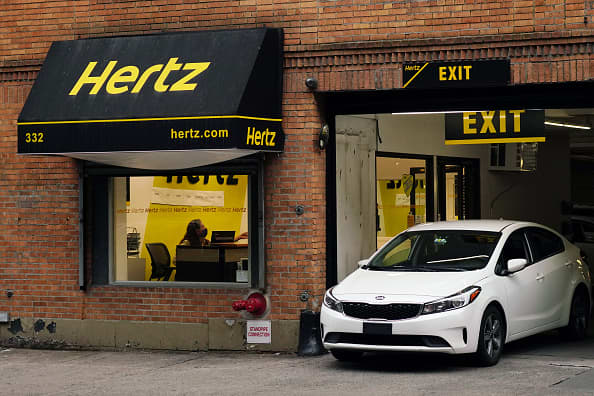Hertz does not have the biggest fleet of rental cars in America, but some would argue that if there can be such a thing as an iconic car rental company, Hertz might be it.
The black and yellow colors have long been a familiar sight to countless travelers renting cars at airports. But now, the century-old company is in bankruptcy court seeking protection from creditors, devastated by drops in demand and fluctuations in the used-car market resulting from the Covid-19 pandemic.
When the crisis hit, travel industry demand dried up, particularly among the business travelers who are essential to Hertz’s rental business. But the company was also slapped by drops in demand for used cars — Hertz pulls in money from the sale of the rental vehicles it retires every few years. These funds are key to paying back the creditors who own the debt Hertz uses to finance its fleet.
The double blow proved too much for Hertz, and it filed for bankruptcy protection on May 22, when it could not make a $400 million payment to lenders.
Rivals Avis and Enterprise also suffered declining demand, but both had better financial cushions. Hertz had spent the years prior to the pandemic investing in upgrading its business.
After the company filed for Chapter 11, shares of Hertz plummeted, reaching a low of 40 cents on May 26. But then an odd thing happened. The stock rallied to more than $6 on June 8, after retail investors poured in, expecting it to climb further.
In a highly unusual move, Hertz attempted to capitalize on the spike and announced it planned to offer $500 million in stock — shares Hertz itself admitted could end up worthless. When a company is in bankruptcy, bondholders are the first in line to get paid. Shareholders are last and have to pick from whatever might be left over. The deal was later canceled after the SEC criticized the offering.
Hertz is in the process of selling off more than 180,000 of its roughly 500,000-car fleet to pay $650 million to creditors by the end of 2020.
Investors say things look less dire for Hertz than they did in May, but challenges remain. There continue to be questions about when business travel will pick up again. If Hertz survives, it may look like a different company and will have to contend with longer-term threats, including ride-sharing and other new competition.
